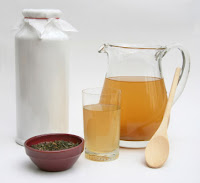- Destroying multidrug resistant cancer
- Destroying cancer stem cells (arguably, the root of all cancer)
- Protecting against radiation-induced damage
- Reducing unhealthy levels of inflammation
- Protecting against heavy metal toxicity
- Preventing and reversing Alzheimer's Disease associated pathologies
Turmeric is the spice that gives curry it's yellow color. It also contains bio active compounds with powerful medicinal properties.
It has been used for thousands of years in India as a spice and as a medicinal herb.
The compounds with medicinal properties found in Turmeric are called curcuminoids - the most important of which is curcumin.
1. The main active ingredient in turmeric is curcumin and it is known to have powerful anti-inflammatory effects and is a strong antioxidant. However, the content of curcumin in turmeric is very low - about 3% by weight. Getting enough curcumin in your diet as a health supplement is very difficult as it is also poorly absorbed into the bloodstream.
Piperina, found in black pepper, enhances the absorption of curcumin by 2000%, so add black pepper to anything you prepare with turmeric or curcumin. Some people swallow a few peppercorns with their curcumin supplements!
2. The fight against inflammation. Inflammation is important, it helps the body fight foreign invaders and also plays a part in repairing damage. Without inflammation, pathogens such as bacteria could easily take over our bodies and kill us.
 However, where as acute (short-term) inflammation is beneficial, Chronic (long-term) inflammation can become a major problem when inappropriately deployed agains the body's own tissues.
However, where as acute (short-term) inflammation is beneficial, Chronic (long-term) inflammation can become a major problem when inappropriately deployed agains the body's own tissues.We now know that Chronic, low-level inflammation plays a major part in almost every chronic western disease. This includes heart disease, cancer, metabolic syndrome, Alzheimer's and various degenerative conditions.
As I have mentioned before, curcumin is a strong anti-inflammatory, in fact it is so powerful that it matches the effectiveness of some anti-inflammatory drugs.
3. Turmeric dramatically increases the antioxidant capacity of the body. One of the mechanisms believed to be behind aging and many other diseases is oxidative damage. Involving free radicals, highly reactive molecules with unpaired electrons.
Antioxidants protect our bodies from free radicals - free radicals tend to react with important organic substances, such as fatty acids, proteins or DNA.
Curcumin is a potent antioxidant that has the power to neutralize free radicals due to its chemical structure. There is also the added benefit that curcumin also boosts the body's own antioxidant enzyme activity.
4. Curcumin linked to improved brain function and a lower risk of brain disease. Brain-Derived Neurotrophic Factor (BDNF), is a type of growth hormone that functions in the brain and drives the multiplication and increase of neurons.
Many common brain disorders such as Alzheimer's, have been linked to decreased levels of this hormone. However, curcumin has been found to increase levels of BDNF.
Therefore, curcumin may be effective at delaying or even reversing many brain diseases and age-related decreases in brain function. Curcumin could also improve memory and make you smarter!
5. Curcumin lowers your risk of heart disease. Heart disease is a very complicated illness. Where curcumin can benefit heart disease is by improving endothelial function - this is the lining of the blood vessels.
Endothelial DYSFUNCTION is a major driver of heart disease, involving the endothelium's inability to regulate blood pressure, blood clotting, etc..
There have been several studies that suggest that curcumin can improve endothelial function, with one such study showing that curcumin works as well as Atorvastatin.
And, if you remember the anti-inflammatory + antioxidant properties of curcumin from point 2, you'll understand how important these are for heart disease.
6. Turmeric can help PREVENT cancer.
A study carried out with 44 male participants - all of whom had lesions in the colon that sometimes turn cancerous, showed that supplementing these men with 4g of curcumin/day for 30 days reduced the number of lesions by 40%. It is thought that curcumin may help prevent certain cancers from happening, especially cancers of the digestive system such as colorectal cancer as mentioned here.
Curcumin has also been found to help in the TREATMENT of cancer. There are many different forms of cancer, but they all have certain things in common - all of which seem to be affected by curcumin supplementation.
Studies have shown that curcumin supplementation can reduce angiogenesis which is the growth of new blood vessels in tumors, metastasis - the spread of cancer, as well as contributing to the death of cancerous cells.
7. Curcumin and the prevention and treatment of Alzheimer's Disease.
Curcumin has been shown to cross the blood-brain barrier and has shown to lead improvements in the pathological process of Alzheimer's Disease.
We know that inflammation and oxidative damage play a part in Alzheimer's Disease and we also know that curcumin has a beneficial effect on both of these pathologies. But, it doesn't stop there. One key aspect of Alzheimer's is an accumulation of protein tangles called Amyloid plaques. Curcumin has been shown to help clear these plaque accumulations.
8. Curcumin helping Arthritis sufferers. Back to the inflammation point again. Arthritis is a common disorder caused by joint inflammation. Many studies have shown that curcumin can help treat symptoms of arthritis and in some cases is actually more effective than anti-inflammatory drugs.
9. Curcumin as an anti-depressant. A small study was carried out on 60 patients being treated for depression. They were separated into 3 groups:
Group 1 was given Prozac
Group 2 was given 1g curcumin
Group 3 was given Prozac + 1g curcumin
After 6 weeks, the curcumin only group had shown similar improvements to the Prozac only group and the group that took both showed the best improvement.
10. Now add all this together...
Curcumin can help prevent:
- Heart Disease
- Cancer
- Alzheimer's Disease
- Inflammation
- Oxidation
So basically curcumin is the perfect anti-aging supplement. So, get curry on the menu on a regular basis - it will do you the world of good!
I can help you improve your health. If you would like to make an appointment with me either in person or via Skype, just send me an email to lucycarr@socialnutrition.com
I can help you improve your health. If you would like to make an appointment with me either in person or via Skype, just send me an email to lucycarr@socialnutrition.com






























